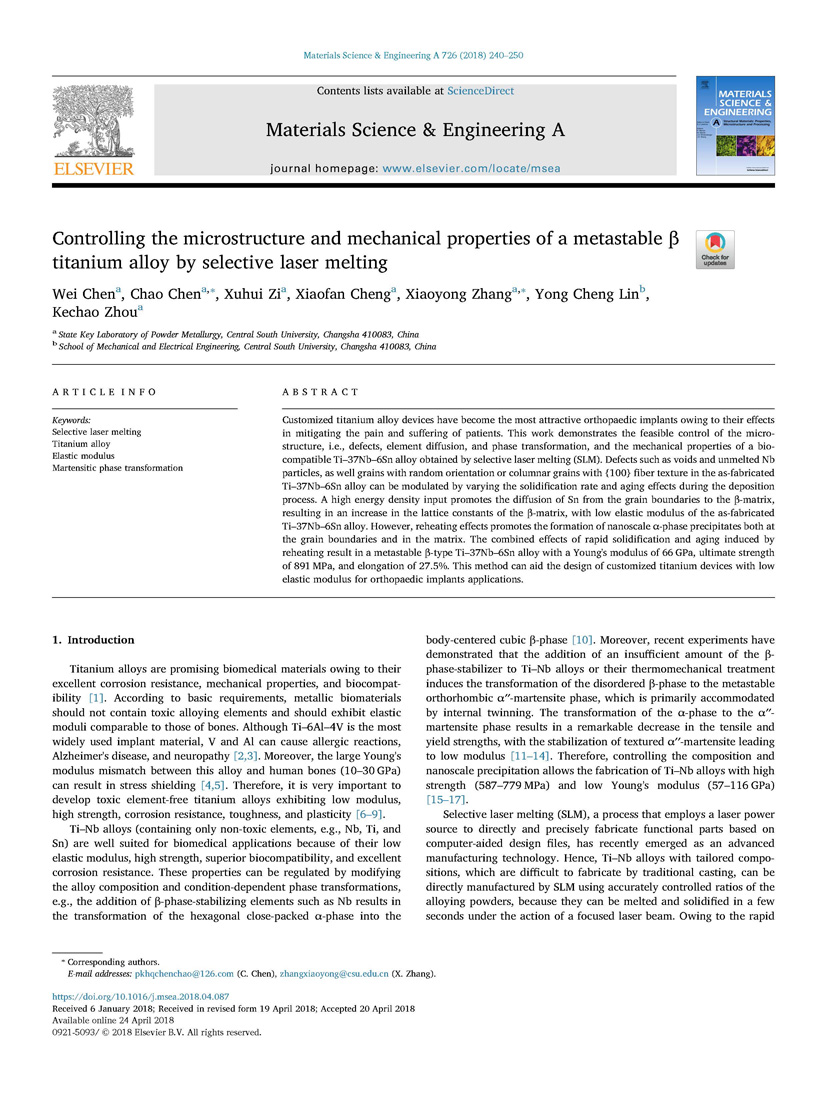Customized titanium alloy devices have become the most attractive orthopaedic implants owing to their effects in mitigating the pain and suffering of patients. This work demonstrates the feasible control of the microstructure, i.e., defects, element diffusion, and phase transformation, and the mechanical properties of a biocompatible Ti–37Nb–6Sn alloy obtained by selective laser melting (SLM). Defects such as voids and unmelted Nb particles, as well grains with random orientation or columnar grains with {100} fiber texture in the as-fabricated Ti–37Nb–6Sn alloy can be modulated by varying the solidification rate and aging effects during the deposition process. A high energy density input promotes the diffusion of Sn from the grain boundaries to the β-matrix, resulting in an increase in the lattice constants of the β-matrix, with low elastic modulus of the as-fabricated Ti–37Nb–6Sn alloy. However, reheating effects promotes the formation of nanoscale α-phase precipitates both at the grain boundaries and in the matrix. The combined effects of rapid solidification and aging induced by reheating result in a metastable β-type Ti–37Nb–6Sn alloy with a Young's modulus of 66 GPa, ultimate strength of 891 MPa, and elongation of 27.5%. This method can aid the design of customized titanium devices with low elastic modulus for orthopaedic implants applications.
